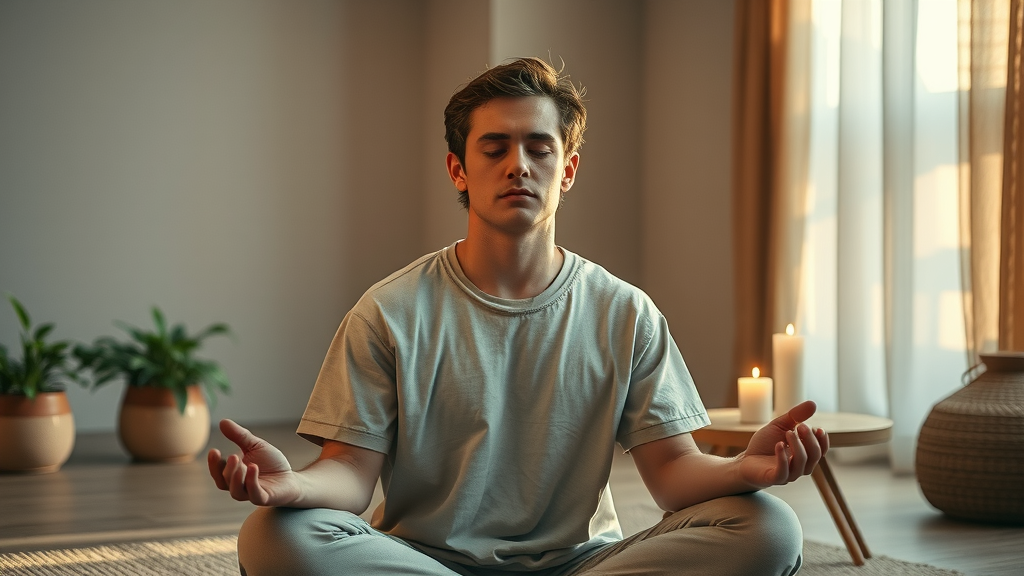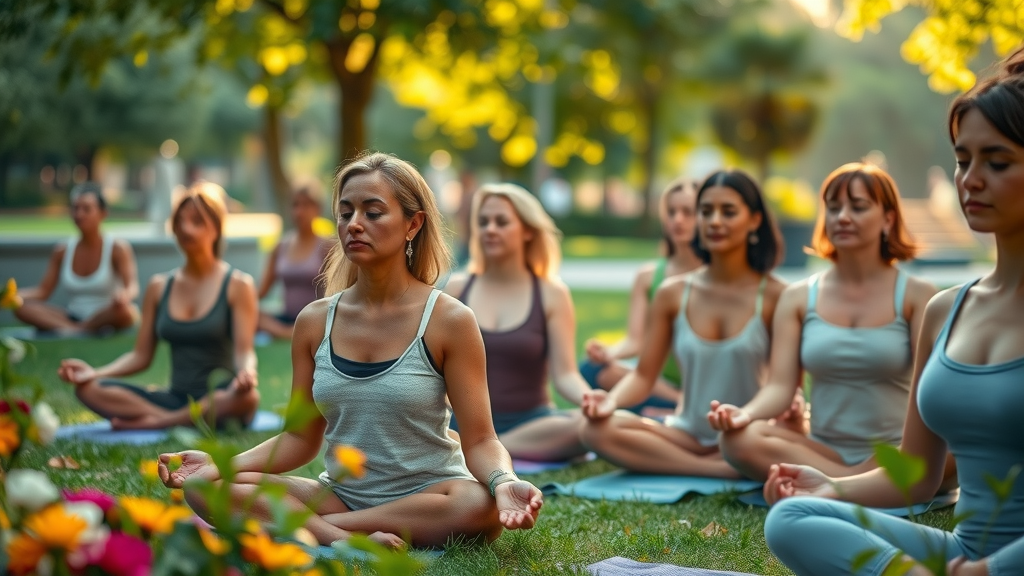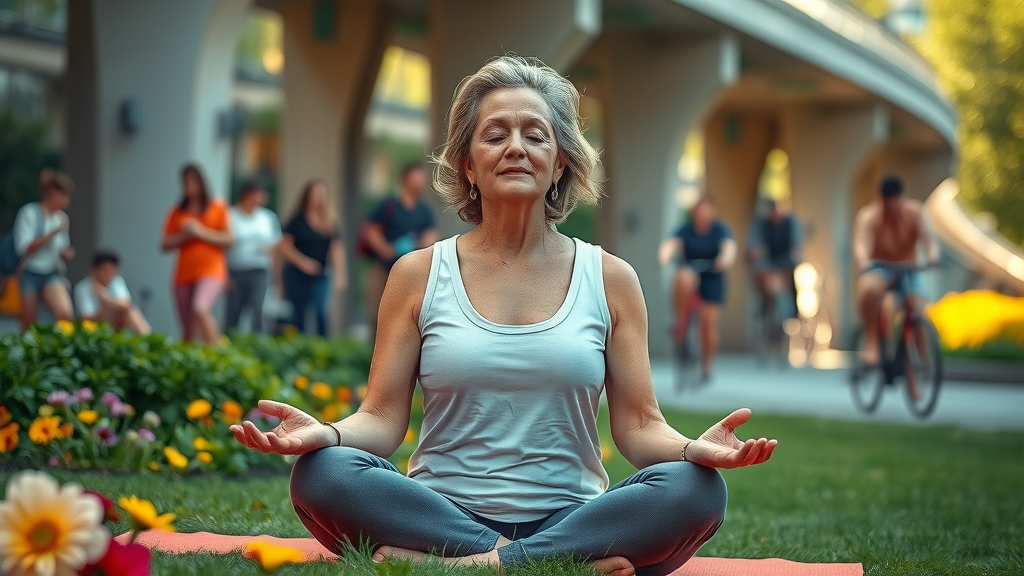Are you searching for a way to find tranquility amidst the chaos of daily life? Mindfulness meditation might be the key you’ve been looking for. This ancient practice has seen a surge in popularity due to its effectiveness in reducing stress and enhancing mental well-being. By the end of this article, you'll have a comprehensive understanding of how mindfulness meditation can unlock a peaceful mind and improve your overall quality of life.
Introduction to Mindfulness Meditation
Mindfulness meditation is a practice focused on cultivating full presence and awareness of the present moment. It is about paying attention intentionally, without judgment, to the unfolding of experiences moment by moment. Generally, practitioners aim to observe their thoughts, emotions, and bodily sensations as they are, fostering a deeper connection between the mind and body. Traditionally rooted in Buddhist philosophy, this practice has become widely accepted in modern therapy techniques, including cognitive behavioral therapy and stress reduction programs.
Understanding the Core Principles of Meditation
The core principles of mindfulness meditation revolve around awareness, presence, and acceptance. By fostering a non-judgmental space within, practitioners can observe their thoughts and feelings, allowing them to dissipate naturally without clinging or aversion. This mindfulness work enables individuals to maintain balance even when faced with life's challenges. Moreover, mindfulness meditation helps bridge the body and mind, leading to improved focus, emotional resilience, and an overall sense of harmony.

Exploring the Benefits of Mindfulness Meditation
Mindfulness meditation significantly impacts both mental and physical health, making it a powerful tool for those experiencing stress and anxiety. It contributes to reduced blood pressure, improved sleep quality, and heightened emotional balance.
Mental and Physical Health Advantages
Engaging in mindfulness meditation has been shown to reduce symptoms of anxiety and depression and support mental health. Studies conducted by prominent medical schools highlight its impact on brain regions associated with emotional regulation and stress response. Meditation helps individuals maintain a calm and focused mind, enhancing life satisfaction and well-being.

Reduction of Stress and Anxiety
The effect of mindfulness meditation on stress and anxiety reduction is profound. Research indicates that individuals who practice meditation experience a decrease in stress hormones, leading to reduced anxiety and a greater sense of calm. By regularly practicing mindfulness, you can create a buffer against high-stress situations, allowing for more thoughtful reactions rather than impulsive decisions.
How to Start Practicing Mindfulness Meditation
If you're ready to embark on your mindfulness journey, it starts with understanding basic techniques and creating a personal meditation space.
Basic Techniques and Exercises
Begin with simple exercises such as focused breathing and body scans. A basic meditation practice involves sitting quietly, paying attention to the breath, and noticing thoughts as they enter and leave the mind. Practicing deep breathing helps anchor your attention, promoting relaxation and clarity.

Setting up a Personal Meditation Space
Crafting a peaceful physical environment enhances meditation practice. Choose a space dedicated to mindfulness, where you can sit comfortably with minimal distractions. Incorporate calming elements like soft lighting, natural aromas, and soothing colors to support your practice. Having a designated meditation zone solidifies your commitment to the practice.
What is the Mindfulness Meditation?
Mindfulness meditation practices center around present-focused awareness and acceptance. Through consistent practice, you'll find greater contentment in everyday life. This discipline develops the capacity to engage with the present moment authentically, enhancing self-awareness and life contentment.
Defining Mindfulness Meditation in Everyday Life
Mindfulness meditation is not merely a task but a lifestyle of attributes that encourages harmonious living. By embodying mindfulness, individuals cultivate a mind-body connection that enriches daily experiences, enabling them to navigate prompts mindfully and with intention.

What are the 3 C's of Mindfulness?
Exploring Curiosity, Choice, and Commitment
The 3 C's of mindfulness - Curiosity, Choice, and Commitment - offer a framework for practice. Cultivating curiosity leads to a deeper understanding of oneself, choice empowers intentional living, and commitment underpins the sustained practice required to experience the full benefits of mindfulness meditation.
What are the 7 C's of Mindfulness?
Comprehending Connection, Creativity, and Courage
Expanding beyond the 3 C's, the 7 C's of mindfulness introduce additional dimensions such as Connection with others, Creativity in addressing life's obstacles, and Courage to face challenges mindfully. Together, these elements fortify a robust mindfulness practice that promotes resilience and profound insights.

What are the 5 R's of Mindfulness?
Insight into Recognize, Refrain, and Release
The 5 R's framework includes Recognize, Refrain, and Release, providing a structured approach to mindfulness. Recognizing thoughts permits reflection, refraining reduces impulsive reactions, and releasing allows practitioners to let go of persistent mind wanderings, solidifying a calm mind and balanced emotions.
Navigating Challenges in Meditation Practice
Common Pitfalls and How to Overcome Them
Practitioners often encounter challenges like a wandering mind and maintaining consistency. To counteract this, setting realistic goals and practicing compassion toward oneself can foster progress. Surrounding yourself with a supportive community also enhances accountability, facilitating sustained meditation habits.

Popular Guided Meditation Practices
Exploring Various Guided Techniques
Diverse guided meditation techniques cater to beginners and advanced practitioners. From sleep-focused sessions to meditative practices like tai chi, there's a method to accommodate various preferences and needs. Using guided meditations can diversify your practice and introduce innovative, engaging approaches.

Inspiring Quotes on Mindfulness and Meditation
“The best way to capture moments is to pay attention. This is how we cultivate mindfulness.” - Jon Kabat-Zinn
FAQs on Mindfulness Meditation
What distinguishes mindfulness from meditation?
While often used interchangeably, mindfulness involves being fully present and aware in daily life, whereas meditation is the structured practice to cultivate such mindfulness. Together, they foster deep integration of awareness into everyday activities.

How long should a beginner meditate each day?
Beginners are encouraged to start with a modest 5-10 minute meditation session, gradually increasing duration as they become more comfortable. Consistency, not duration, remains crucial in developing mindfulness routines.
Can meditation help improve focus and productivity?
Yes, engaging in mindfulness meditation can substantially enhance focus and productivity. By fostering present awareness, meditation helps reduce distractions, allowing for sustained concentration and effectiveness in tasks.
Key Takeaways from Mindfulness Meditation
- Improved mental wellness and resilience
- Greater emotional balance
- Enhanced self-awareness and life satisfaction
Conclusion and Further Exploration
Encouraging Continued Practice and Growth
Mindfulness meditation provides invaluable tools for personal growth and well-being. Commit to regular practice and embrace the transformation. Start your journey today and unlock the peace within.
Call to Action: Explore Your Meditation Journey
Download a meditation app or join a community class to embark on your mindfulness journey. With a wealth of resources available, there has never been a better time to start practicing mindfulness.

 Add Row
Add Row  Add Element
Add Element 



Write A Comment